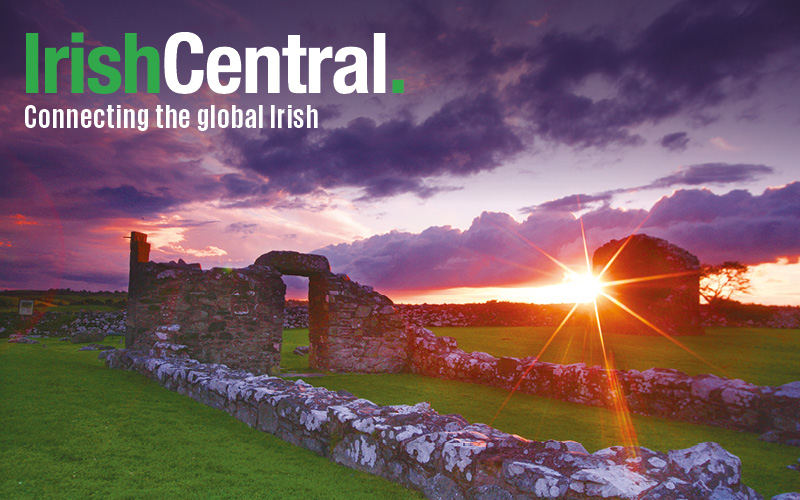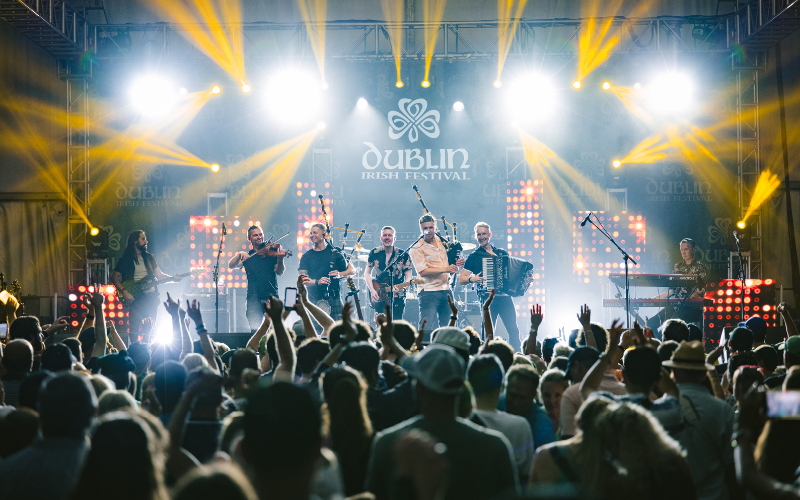The Irish government has now published its plans for the centenary commemorations of the 1916 Rising. Sinn Fein and Fianna Fail, who regard themselves as the only true Republicans, say the plans show that the government is half-hearted about celebrating the Rising and embarrassed by our history.
This is a gross exaggeration. The government's plans are impressive.
They include around 40 state events including a major Easter Sunday parade and a state reception for 1916 relatives. There will be a new exhibition center at the GPO, a new visitor centre at Kilmainham Gaol, and 14-17 Moore Street (where the rebels holed up before surrender) will be turned into a commemorative center.
The government will also involve schools. Children will be challenged to take a fresh look at the 1916 Proclamation and asked to write a new one that will reflect the hopes of their generation. They will study the flag so they understand its origins and meaning.
The National Library, the National Archives and the universities will organize events including a major 1916 national exhibition to bring the history of the Rising alive. A wide program of artistic events will take place, including special concerts in the National Concert Hall and a major exhibition in the National Gallery. There will also be Irish cultural events around the world to mark the centenary, including a festival in Washington.
These are just some of the highlights of what will be a very wide-ranging program of commemoration (you can see the full outline online) which will continue throughout the year. It certainly is not half hearted.
The government is clearly determined not to allow the centenary to be hijacked by Sinn Fein and/or Fianna Fail. But it is also a program that seems determined not to give offense to those who opposed or did not support the Rising at the time.
Announcing the program, the Minister for Arts, Heritage and the Gaeltacht Heather Humphreys, who is taking the lead role on this, used the word "inclusive" several times.
"Inclusivity is at the heart of Ireland 2016, and I would like to issue an open invitation to the Irish people across all communities and traditions, and indeed around the world, to get involved -- 2016 is for everyone, " Humphreys said.
"We will remember and commemorate the 1916 signatories and all those who fought and lost their lives in the Rising in a very appropriate and respectful way."
Notice the word "all” -- presumably this will include the policemen and civilians, almost all of them Irish, who were killed by the 1916 rebels.
"My primary objective is to ensure that the 1916 commemorations are inclusive, appropriate and respectful," Humphreys said. "Over the past 100 years, we have grown as a nation that values and embraces our differences as a positive symbol of diversity, rather than a negative source of division. Together, as a nation, we will respectfully and inclusively remember that pivotal event in our history, which set in motion a chain of events that led to our independence."
This can be interpreted in different ways. But it does appear to indicate that the official commemorations of 1916 will be careful not to exclude all those Irish people who were part of the security forces in Ireland at the time, or were abroad fighting in the First World War with the aim of winning Home Rule.
If that means the government is slightly conflicted about celebrating 1916, then that is understandable. The truth is that a great many people here are conflicted about what "the men of 1916" got up to and uncertain about how we should be celebrating their actions. The government's carefully modulated and inclusive plans are to some extent a reflection of that.
Of course we all like a good party, and the centenary of the mini revolution in 1916 that accidentally led to our independence can be seen as an excuse for one. That appetite for a party was clear when so many people came to O'Connell Street in the center of Dublin two weeks ago for Easter weekend to join in the RTE Road to the Rising day of events.
Our national TV and radio service is planning a full year of programming in the run up to Easter 2016, and this fun day was designed to kick it all off. The aim of the day was to show what life was like in Dublin 100 years ago -- lots of people came in period costume -- with vintage displays and street performers as well as historians on hand to give talks about what was happening in the GPO and nearby venues at Easter 1916.
The day was a great success, with thousands of people taking part rather than the expected hundreds. As well as the period costumes, there was food from the time like "gur" cake, music from the time like “It's a Long Way to Tipperary,” and some of the old Dublin trams were back on the street. It may not have been the intention, but the impression given was that Dublin at the time was a settled and relatively happy part of the British Empire.
We all know that Ireland at the time was far from an ideal society. Dublin had some of the worst slums in Europe and there was real poverty.
But there was also a very large and satisfied middle class who saw being part of the Empire as an opportunity rather than a cause for revolt. The royal visits in 1903 and 1911, while somewhat contentious, had seen cheering crowds on the streets.
We can't change our history. But 100 years after the events of 1916 we should be able to question it, particularly the cleaned up, simplified version we were taught in school.
The aim of that was to build our national sense of identity, and part of that process was turning "the men of 1916" into mythical revolutionary heroes instead of the poetic academics and hopelessly dreamy idealists they actually were.
The fact is they launched their mini revolution with no mandate from the Irish people. That is why the Proclamation refers to them taking action "in the name of God and of the dead generations.”
They certainly were not acting with the approval of the vast majority of Irish people living at the time. Most Dubliners in Easter 1916 reacted to them with a mixture of disbelief, disdain and derision.
We can't rewrite history. What happened in the past cannot be changed.
But to have a national commemoration which gives exalted and heroic status to "the men of 1916" without putting what they did in a wider context and asking some questions about their actions would be wrong.
The fact is that Home Rule for Ireland had been legally established in 1914. Despite the delay in implementation and the difficulty posed by Unionist opposition, it is reasonable to believe that it would have come eventually, probably without the North.
There is no reason to believe that the British Parliament or the British people would have opposed Home Rule for Ireland at some point over the following 10 or 20 years. The wheel of history was turning and everyone knew it.
Both Australia and Canada were given their legislative independence in 1931 (just 15 years after the 1916 rebellion) with the Statute of Westminster and became sovereign nations. Why should Ireland have been any different?
As former Taoiseach (Prime Minister) John Bruton has pointed out, John Redmond, the Irish Parliamentary Party and their push for Home Rule are just as important a part of the history of that time as the 1916 rebels. The fact that the executions of the 1916 leaders and British mishandling of the aftermath of the Rising subsequently changed the dynamic and the national mood does not negate that.
It also tends to be forgotten that there were no British Army regiments in Ireland when the Rising began. The soldiers here were all Irish (Royal Dublin Fusiliers, etc.), as were the police, the Royal Irish Constabulary. These were the people the rebels were shooting at and killing.
Dozens of civilians were also killed during the Rising, as well as up to 40 children. Much of the beautiful center of Dublin city was destroyed during the fighting.
What gave the 1916 rebels the right to do what they did? It must have been the "dead generations" because none of them was ever elected to anything.
The absurdity of our history is that after the "blood sacrifice" of the 1916 leaders, the subsequent war of independence and the civil war, what we ended up with was roughly the sort of arrangement that Home Rule would have given us anyway.
We got a parliamentary democracy as a self-governing dominion within the British Commonwealth (like Australia and Canada). The king was head of state, represented here by a governor general (up to 1936!), and the British held on to deep water ports. In time all that changed, but it would also have changed under a Home Rule arrangement.
The point is that it is at least arguable, and probably very likely, that we would have got our independence within 20 years of 1916 without any bloodshed whatsoever. We would have got our freedom without creating the legacy of bloody violence that was subsequently used by the Provos to justify their equally unmandated murderous campaign during the recent Troubles.
All of this is part of our history and should be part of what we remember when we commemorate 1916 and the emergence of the Irish state. It is a painful past, far more nuanced than our school history lessons ever suggested.
That simplified history making mythical heroes out of the men of 1916 was part of our nation building. We're past that stage now. We're grown up enough to handle the truth.
Hopefully, that will be remembered as we approach 2016, the centenary of the Rising.




Comments